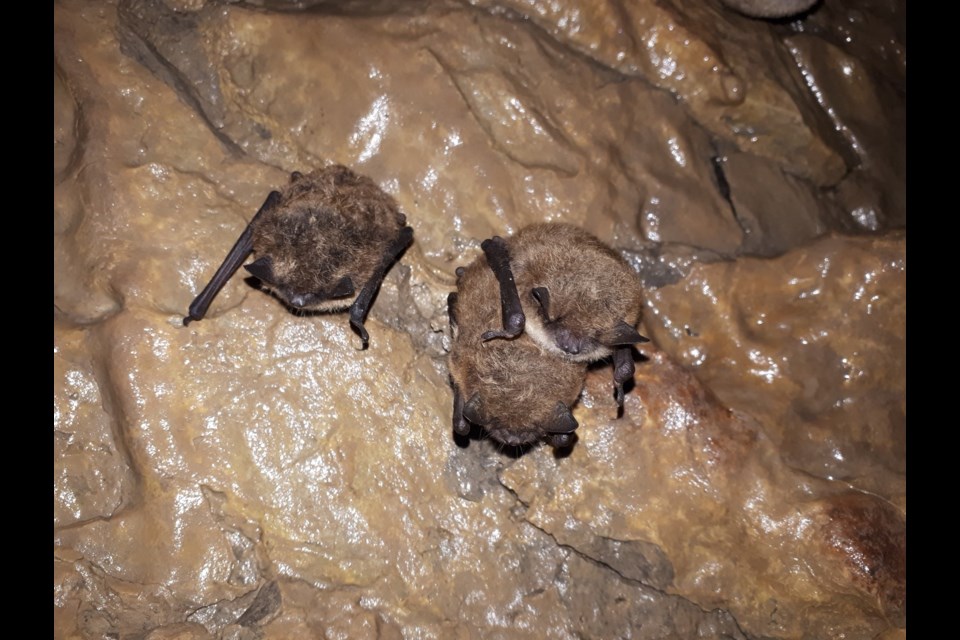Wildlife advocates are raising concern about the potential spread of the deadly white-nose syndrome fungal infection to British Columbia’s bat population, which has so far avoided recorded cases of the fatal disease that's spread across North America.
To help counter this growing problem, Danielle Dagenais, regional coordinator for BC Bats, is looking for volunteer support to collect data and help track the potential spread of the disease to Sea to Sky bat populations.
“We're offering a training course to reach out to either an individual or a group of individuals like a nature club in Whistler and Pemberton that can devote some time to help us with our programs, which is our white-nose syndrome surveillance program and our annual bat count so that we can collect more information on the bats there,” Dagenais said.
The first reported case of the fungal infection came in 2006 in New York State. Shortly after the discovery, cases began to pop up among East Coast bat populations at an incredibly rapid pace and spread in a wave across North America. In dozens of cases, 90 to 100 per cent of the roosts infected with the fungus have died.
Cases of the disease were also recorded in 2016 in Washington State and have spread to most of the state's coastal counties. In 2022, Alberta saw its first cases near Calgary. So far, there are no reports of the disease in B.C., but with the province slowly being surrounded, it is only a matter of time before cases begin appearing.
“White-nose syndrome has been devastating populations out east for quite a while. And we don't really know what extent it will have out west,” Dagenais said. “We have species out west they don't have out east. Our bats hibernate differently out west than they do east. But we know it's spreading and advancing and was just detected in Alberta, so it's getting closer to the B.C. border every year.”
B.C. Bats, a network of community bat projects across B.C. working in conjunction with the provincial Ministry of Environment, is holding a presentation on Feb. 28 at 7 p.m. at Valhalla Pure Outfitters in Squamish to connect with Sea to Sky climbers to get a better idea of the population of bats roosting in difficult-to-reach rock crevices.
In addition to getting assistance from local climbers, the organization plans to sign Sea to Sky residents up as species ambassadors. The ambassador program seeks to understand better the health and number of bats between Squamish and the Pemberton Valley, and where data needs improvement. A free two-hour course on the ambassador program will be held on March 21 over Zoom.
Residents can also help combat the disease by reporting if they see a dead bat or have sightings of winter bat activity to BC Bats at bcbats.ca, via email at [email protected] or by calling 1-855-922-2287 (1-855-GOT-BATS). Those interested in attending the information workshops or learning more can contact Dagenais at [email protected].





